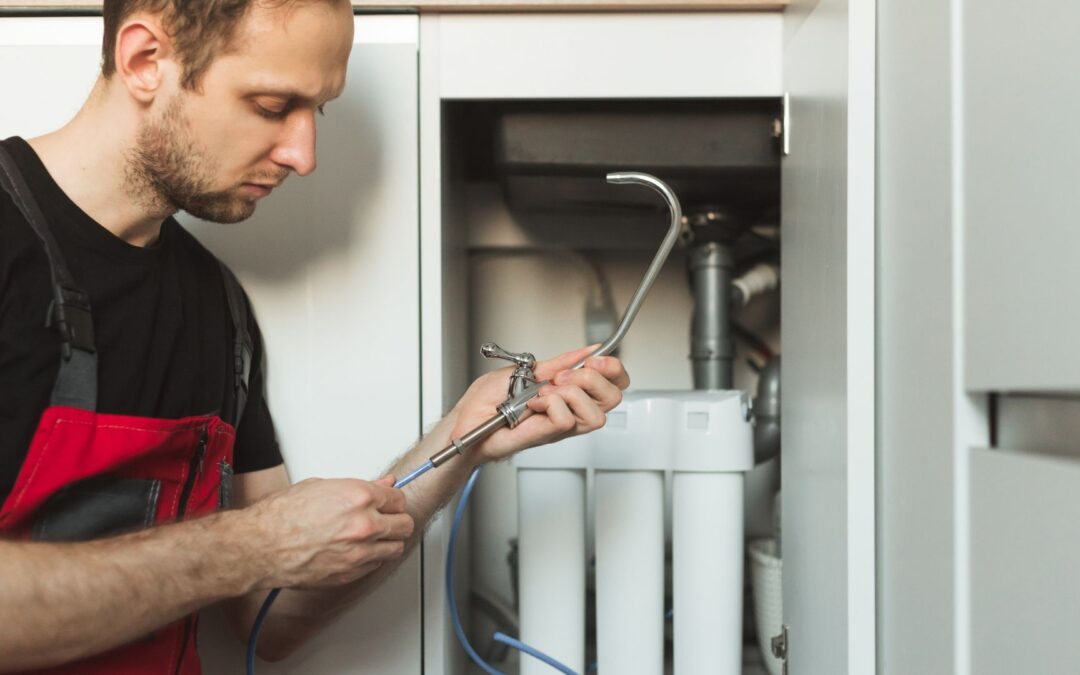When it comes to improving the quality of your home’s water, you might have heard about water filters, softeners, and conditioners. These terms are often used interchangeably, but they serve different purposes. Understanding the differences between these systems can help you choose the right solution for your home’s water quality needs.
Water Filters: Removing Impurities
Water filters are designed to remove contaminants from your water supply, making it safer and healthier to drink and use. These systems target impurities like chlorine, sediment, lead, bacteria, and other chemicals.
How They Work:
Water filters use different types of filtration media, such as activated carbon or reverse osmosis membranes, to trap particles and pollutants as water passes through. The result is cleaner, better-tasting water that’s free from harmful contaminants.
Best for:
- Removing harmful chemicals and metals like chlorine, lead, and mercury.
- Improving the taste and smell of your drinking water.
- Providing safer water for cooking, drinking, and bathing.
Water Softeners: Reducing Hard Water
Water softeners are specifically designed to address hard water, which is water that contains high levels of calcium and magnesium. These minerals can cause a range of problems, including limescale buildup in your pipes and appliances, dry skin, and dull laundry.
How They Work:
Water softeners use a process called ion exchange to remove calcium and magnesium ions from the water and replace them with sodium or potassium ions. This softens the water, preventing mineral buildup and making it more gentle on your skin and appliances.
Best for:
- Homes with hard water that causes scale buildup on faucets, appliances, and inside pipes.
- Reducing the wear and tear on water-using appliances like dishwashers and water heaters.
- Softening water to improve the feel of skin, hair, and laundry.
Water Conditioners: Addressing Water Problems Without Salt
Water conditioners are a salt-free alternative to water softeners. Instead of removing minerals from the water, they alter the structure of the minerals to prevent them from sticking to surfaces. This reduces scale buildup without the need for salt or chemicals.
How They Work:
Water conditioners use various technologies, such as magnetic or catalytic systems, to change the behavior of minerals like calcium and magnesium. These minerals remain in the water, but they are less likely to cause scaling and buildup on surfaces.
Best for:
- Homes that want to reduce scaling without using salt or chemicals.
- Households concerned about sodium intake or where traditional water softeners are prohibited.
- Reducing scale on fixtures and appliances while preserving beneficial minerals in the water.
Final Thoughts
Choosing between a water filter, softener, or conditioner depends on the specific issues with your water supply. If you’re dealing with chemical contaminants or poor water taste, a water filter may be the best solution. For homes with hard water, a water softener can make your water gentler on your skin, appliances, and plumbing. If you prefer a salt-free option, a water conditioner can help reduce scale without removing beneficial minerals.
If you’re unsure which system is right for you, it’s always a good idea to have your water tested and consult with a plumbing professional who can recommend the best solution for your home.

